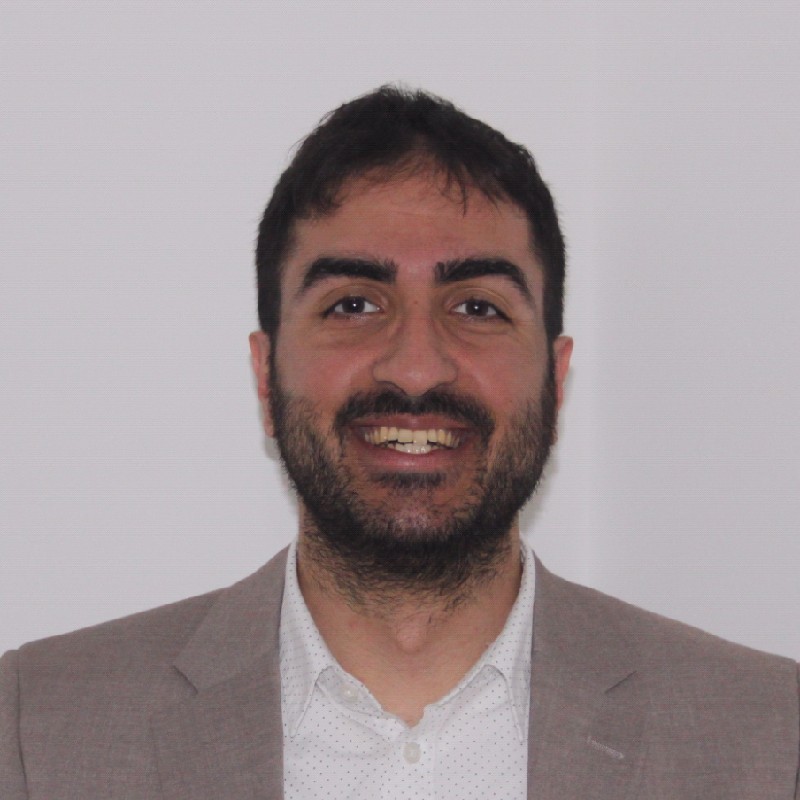Welcome to ISM 2024
We’re in the midst of a significant transformation regarding the way we produce products or deliver services thanks to the intensive digitization of manufacturing and connected processes. This revolution will increase productivity, shift economics, foster industrial growth and modify the profile of the workforce – ultimately changing the competitiveness of companies and regions.
The 2024 International Conference on Industry 4.0 and Smart Manufacturing (ISM) represents a new platform for knowledge exchange, the review and discussion of theoretical advances, research results, and industrial experiences, among scientists, researchers, decision makers, practitioners and students dealing with the topics under the umbrella of Industry 4.0 and Smart Manufacturing.
Therefore, we would like to kindly invite you to take an active part in this conference and in the co-located events that will be held in Prague, Czech Republic, next November 20-22, 2024 and explore with us the latest news, views and developments in the exciting world of Industry 4.0 and Smart Manufacturing.
Sincerely,
ISM 2024 Organization Committee
Scope
Topics & Tracks
Authors are invited to submit a regular or short paper on the following topics. Nevertheless, papers dealing with other Industry 4.0 and Smart Manufacturing topics are also welcome.
TOPICS
- Additive Manufacturing
- AI-enhanced Manufacturing
- Autonomous production
- Big Data Analytics in Manufacturing and Logistics
- Blockchain for Manufacturing and Logistics
- Cloud Computing
- Cyber Physical Production Systems
- Cyber Security
- Digital Twins
- Economics & Business Models
- Industrial Engineering Education 4.0
- Ergonomics and Social Factor
- Human-Machine Interaction
- Industrial Internet of Things
- Smart and Digital Supply Chains
- Maintenance and Lifecycle Management
- Manufacturing Technologies
- Product & Process Design
- Production Systems and Supply Network Engineering
- Project and Risk Management
- Quality Management & Assurance
- Robotics in Industry
- Occupational Health & Safety
- Simulation in Production and Logistics
- Smart Operators and Human-centric Systems
- Sustainability-oriented production
- VR/AR Applications in Industry
APPLICATION AREAS
- Agriculture, Food, Drinks & Tobacco Industry
- Biotech, Pharmaceutical & Cosmetic Product Industry
- Chemical Industry
- Commerce & Finance
- Construction Industry
- Education Sector
- Electrical and Electronic Engineering Industries
- Healthcare Sector
- Manufacturing & Production
- Mechanical Engineering Industry
- Oil & Gas Industry
- Public service
- Raw materials, metals, minerals and forest-based industries
- Telecommunication Industry
- Textiles, fashion and creative industries
- Tourism Industry
- Transport equipment manufacturing
- Transportation & Shipping Industry
- Utilities Industry
INVITED TRACKS
Chair: (a)Margherita Bernabei, (b)Silvia Colabianchi
Affiliation: (a)La Sapienza – Department of Mechanical and Aerospace Engineering (Italy), (b)La Sapienza – Department of Computer, Control and Management Engineering (Italy)
Track Description: Advances in automation are changing the relationship between humans and machines. Human-centric technologies in manufacturing promote human safety and their active role in production. Adaptive automation seeks to address the criticisms of traditional and static automation, such as the out-of-the-loop state, the degradation of skills and knowledge, and the decrease in situation awareness. It proposes a dynamic allocation of tasks between humans and machines over time, depending on system, or human conditions and performance.
In this way, it can enhance human-machine co-evolution and promote the adaptation of technology to human needs and performance.
This track adresses adaptive solutions in manufacturing, focusing on collaborative technologies such as Cobots (collaborative robots) to explore the role of agents in enhancing mutual capabilities.
The track welcomes contributions focused on adaptive solutions that provide dynamic adaptability, interaction, and collaboration with humans, including:
- Innovative and adaptive theoretical approaches (theories and frameworks) to evaluate the role of humans in collaborating with automation
- Practical use cases that explore and/or validate real-world applications of adaptive solutions
- Comparative analysis, both practical and theoretical, of different adaptive automation scenarios. The analysis should evaluate human and/or system performance, e.g. productivity, ergonomic status, cognitive load, and situation awareness.
Chair: (a)Tim Jeske
Affiliation: (a)ifaa – Institute of Applied Industrial Engineering and Ergonomics (Germany)
Track Description: Human work is crucial for a successful development of companies. Today, it is strongly influenced by the opportunities and increasing spread of digitalization. Digitalization facilitates existing forms of work and collaboration, enables innovative approaches and is the basis for the use of artificial intelligence. Examples include the increased proportion of employees working from home during the corona pandemic, a human-robot collaboration which combines the individual strengths of human and robots as well as self-adapting assistance systems. A successful application of digitalization and artificial intelligence requires changes not only in technological aspects but also in organizational circumstances and personal aspects like development of qualifications and skills. The focus of “Artificial Intelligence for Supporting Human Work” is the innovative design of socio-technical systems for supporting human work by using digitalization and artificial intelligence.
Co-Chairs: (a)Raffaele Gravina, (b)Antonio Guerrieri, (c)Claudio Savaglio, (d)Francesco Cauteruccio
Affiliation: (a)(c)University of Calabria (Italy), (b)Italian National Research Council (CNR)-ICAR (Italy), (d)University of Salerno (Italy)
Track Description: Cyber-Physical Systems (CPS) and Industrial Internet of Things (IIoT) technologies are key enabling factors for the creation of a connected value chain in Smart Factories. Integrated with other emerging paradigms like Digital Twins, Edge Computing and Blockchain, CPS and IIoT support advanced data sensing, transmission and analytics, thus fostering the creation of a Smart Factory ecosystem where humans, machines and products are seamlessly internetworked aiming at the maximum efficiency, effectiveness and safety. The way towards cognitive and autonomic Smart Factories necessarily goes through a multidisciplinary approach involving the latest advancements in the whole ICT landscape: the potentialities are huge as well as the challenges to face. As a consequence, the track aims at stimulating both practical and theoretical contributions focused on the integration of CPS and IIoT in the Smart Factory domain. Topics of interest include, but are not limited to: IIoT-based approaches for Smart Factories, Digital Twins and Digital Thread, Body Sensor Networks for Safety in Smart Factories, CyberSecurity, Privacy and Trust for Smart Factories, Development methodologies and simulation tools for Smart Factories, Smart Products and Business models for product-service hybrids, Edge-Cloud continuum for architecting Smart Factories, Cognitive Factories, Smart Factories Applications.
Co-Chairs: (a)Giulio Di Gravio, (b)Lorenzo Fedele, (c)Antonio Javier Nakhal Akel, (d)Riccardo Patriarca, (e)Francesco Simone
Affiliation: (a)(b)(c)(d)(e)Sapienza University of Rome (Italy)
Track Description: Modern industrial settings make use of digital and inter-connected devices to improve daily operations and functionalities. The Internet-of-Things makes the so-called Cyber-Physical Systems (CPSs) ensure greater efficiency, higher coordination, and improved quality levels. However, this technological advancement brings additional vulnerabilities emerge, with potential cascading effects on physical processes. Traditionally, cyber security focuses on defending systems from data and information leakages, but when referring to modern industrial systems, there is the need to study the impact of cyber vulnerabilities in larger operating contexts. To this extent, traditional strategies for managing plant’s physical failures (e.g., maintenance and lifecycle management, reliability assessment) must be complemented with novel strategies accounting for plant’s cyber resilient capacities. This track welcomes contributions investigating the topic of cyber security and cyber resilience in productive CPSs at large. Potential topics include, but are not limited to:
- The design and development of integrated Digital Twins and simulation models to assess system resilience in spite of cyber threats, eventually acknowledging human actions.
- The use of advanced approaches to model complex CPSs operations and to investigate their cyber vulnerabilities.
- The application of Artificial Intelligence and Business Analytics techniques for the cyber resilient management of industrial CPSs.
Co-Chairs: (a)Maurizio Faccio, (b)Irene Granata
Affiliation: (a)(b)Università degli Studi di Padova (Italy)
Track Description: Among the recent technologies and methods constituting Industry 4.0, collaborative robots (or cobots) provide unique advantages. Introduced in the last decade, this new category of robots aims to physically interact with human operators in a shared environment thus, avoiding the need for the safety measures typical of traditional robotic systems. Workspace sharing, under proper condition, improves flexibility and reduces the cycle time. Moreover, the absence of safety fences allows to quickly change the layout, helping to implement a dynamic productive cell, capable of adapting to volume and model changes. However, the cobots’ ability to cooperate with human operators could decrease their efficiency if this interaction is not properly studied. When an operator works near an automatic system, safety is always a concern. Moreover, the needs and perceptions of the operator must be considered in terms of system performance, like productivity and production costs. This is in accordance with the human-centered direction of Industry 4.0, which introduces the concept of Operator 4.0, i.e., the augmentation of the human capabilities through these novel technologies. This open special session aims to gather the latest research achievements, findings, and ideas regarding collaborative robots, with particular attention to the influence of human factors. These include advanced technologies, mathematical models and methods, automation, management techniques and approaches; moreover, industrial case studies are also welcome.
Co-Chairs: (a)Fabio De Felice, (b)Antonella Petrillo
Affiliation: (a)(b)University of Napoli “Parthenope” (Italy)
Track Description: The increase in global competitiveness challenges the manufacturing market to integrate design, manufacturing, and product in order to improve quality and process. In today’s market, even large companies need flexibility. Thus, in recent years, the focus on smart manufacturing systems is pushing companies toward a new variety of highly specific technical solutions. These solutions are characterized by an integrated approach to manufacturing termed “digital manufacturing”. In fact, digital manufacturing systems often incorporate optimization capabilities to reduce time, cost, and improve the efficiency of most processes. Despite the recognition of importance for digital manufacturing, most organizations feel they lack the necessary capabilities. The digital revolution is now our “present” is not the future. There are many different tooling processes that digital manufacturing utilizes such as artificial intelligence, automation and robotics, additive technology, and human-machine interaction, IoT, etc. The metaverse has recently been added to these tools becoming an increasingly popular form of collaboration within virtual worlds. The tools characterizing digitization are destined to evolve and increase. In any case, these tools are unleashing innovations that will change the nature of manufacturing itself. Industry and academic leaders agree that digital manufacturing technologies will transform every link in the manufacturing value chain, from research and development, supply chain, and factory operations to marketing, sales, and service. This transformation is known as fourth industrial revolution, also referred to as Industry 4.0 but the real new trend refers to Industry 5.0, the future, already penetrating trend, of change processes directing towards closer cooperation between man and machine, and systematic prevention of waste and wasting including industrial upcycling. The aim of the track session is to host a selection of papers from researchers, academics, as well as practitioners providing significant insights in the context of Industry 4.0 towards Industry 5.0 to solve complex problems in the field of manufacturing planning, management, and control.
Chair: Abbas Dashtimanesh
Affiliation: KTH Royal Institute of Technology (Sweden)
Track Description: The ” Digitalizing the Ship Life Cycle” track emphasizes the pivotal role of digitalization throughout every stage of a ship’s life, from concept design to decommissioning. It explores how integrating digital tools, methods and technologies revolutionizes traditional practices, enhancing efficiency, safety, and sustainability across the whole ship life cycle. Key areas of focus include design optimization through advanced simulations and virtual prototyping, streamlined production using digital twins and IoT technologies, operational efficiency via sensor networks and AI, and optimized maintenance schedules to extend component lifespan. The track invites researchers and industry experts to contribute papers showcasing the latest findings, innovations, and case studies in ship life cycle digitalization. Looking ahead, it aims to foster dialogue on advancing digitalization efforts within the maritime industry, with the ultimate goal of driving greater efficiency, safety, and sustainability across fleets. The call for papers encourages contributions that deepen our understanding of how digitalization shapes ship design, production, operation, maintenance, and beyond, paving the way for a more innovative and resilient maritime sector.
Co-Chairs: (a)Bernd Markus Zunk, (b)Manuel Woschank, (c)Corina Pacher, (d)Volker Koch, (e)Mariaelena Murphy, (f)Erwin Rauch
Affiliation: (a)(c)(d)Graz University of Technology (Austria), (b)(e)Montanuniversität Leoben (Austria), (f)Free University of Bozen-Bolzano (Italy)
Track Description: Mankind is faced by hyper-dynamic challenges that demand transformative solutions for a better way of life, work, and environmental protection. Industry 5.0 offers a multitude of concepts, which will permanently change work processes, substitute traditional occupational fields and establish new occupational fields and thus tremendously effect modern engineering education, consequently referred to as Engineering Education 5.0. Vocational education and training is seen as engine for innovation and growth, equipping people for digital and green transformation and occupations in high demand. Engineers, in particular, play a crucial role in devising technologically, innovative, and sustainable solutions that address global challenges like climate change, resource scarcity, and energy transition. Ergo, empirically-based research of educational requirements and the essential competences is required. This research should be established throughout the entire student life cycle to ensure Engineering Education reaches a high standard, fostering systematic development, competitiveness, and employability. This track welcomes researchers and industry professionals to exchange insights and creative concepts within the domains of Engineering Education 5.0, namely i) Logistics and Supply Management, ii) Product Development and Manufacturing, and iii) Entrepreneurship and Industrial Marketing Management, but not exclusively. By sharing best practices, participants will actively contribute to the systematic evolution of Engineering Education 5.0.
Co-Chairs: (a)Rui Pinto, (b)Gil Gonçalves, (c)Miroslav Žilka, (d)Udayanto Atmojo Zunk
Affiliation: (a)(b)SYSTEC-ARISE, Faculty of Engineering, University of Porto (Portugal), (c)Czech Technical University (Czech Republic), (d)Aalto University (Finland)
Track Description: In response to the profound shifts brought by Industry 4.0, Engineering Education is key to pursue strategic objectives in the 2030 Agenda for Sustainable Development, such as competitive manufacturing skills, social sustainability, manufacturing innovation ecosystems, resilient manufacturing, and an overall manufacturing fit for the digital age. In the Industry 5.0 context, education focuses on humans: connect, transform and empower them to become the backbone of a strong manufacturing innovation community, and a prosperous and inclusive society. On the one hand, human empowerment, by leveraging learning paths and educational/training programmes for professionals. On the other hand, connect and transform, to create the infrastructures and the learning experiences that enable professionals and organizations to network, skill, upskill and reskill. This track invites researchers and practitioners to share their experiences and innovative concepts related to education for transforming organisations, skill-driven learning, educational/training programmes for perofessional upskilling and reskilling, and strategies to improve the Industry 4.0 adoption and knowledge transfer by the organisations. Topics of interest include: Innovative teaching and learning experiences; Emerging educational technologies; Learning Factories and Industry 5.0; Training and knowledge transfer approaches for professionals.
Co-Chairs: (a)Steven Umbrello, (b)Carmela Guarascio
Affiliation: (a)TU Delft (The Netherlands), (b)University of Macerata (Italy)
Track Description: Technologies and Innovation have always been an engine of change into organizations and labour market. With the design and deployment of nano-bio-info-cogno technologies becoming evermore ubiquitous, their impacts can likewise be seen across a variety of human and organizational domains. Industry and engineering are a privileged place to study these changes, because they are the nexus for the development of those emerging and converging technologies. Because these impacts have been predicted and are manifesting themselves as being substantial and profound, the ethical deliberations on how to meet these challenges becomes just as significant. Moreover, they could address some challenges towards the relationships between emerging technologies and the sustainability and responsible innovation. This Open Track aims to address this lacuna by exploring research on how ethical theories and responsible innovation can bridge the gap in industry and engineering to meet these challenges. Researchers are invited to present papers on topics such as, but not limited to:
- how to address the specific ethical issues that emerge in industry 4.0 systems and infrastructures
- how to account for value change in sociotechnical systems over time
- philosophical and technical explorations for embedding values into sociotechnical systems
- design strategies particularly capable of aligning artificial intelligence systems with human values in the context of Industry 4.0
- design approaches and methodologies that can be adopted for value-alignment across engineering domains
- define the analysis of the impact of emerging technologies on labour market and organizational structure (ex. Agile, teal organizations, CSR and innovation…).
- relationships among emerging technologies and strategy of local development, with territorial implications.
Co-Chairs: (a)Ihsan Ullah, (b)Umair Ul Hassan, (c)Ali Intizar, (d)Michael Madden
Affiliation: (a)(b)(d)University of Galway (Ireland), (c)Dublin City University (Ireland)
Track Description: Majority of the industries are enthusiastic to use and adopt Deep Learning (DL) for Internet of things (DL on the edge). However, there are several concerns around this including privacy, cost, speed, reliability, security, networking, and trust in the systems that uses such models or approaches. One of the
limitations in DL is its data hungry nature i.e. it needs more data for training to give good results. However, after GDPR and other laws, data sharing became a big concern. Therefore, Google in 2016 presented its Federated Learning (FL) approach that does not need data to be stored on a central location for training rather the data remains at its own premises, but the model parameters are shared to be trained remotely over the data and then the trained model is sent back to be globally aggregated on the server. It helps in securely and efficiently training a model without violating any privacy concerns. Several researchers and practitioners have expressed their interest in this area with the expectation of profound effect in the context of Industry 4.0. However, the topic is still in early stages and needs to be investigated. There is a still more to do in literature from both a theoretical and empirical point of view. Therefore, this special track is dedicated to present the effectiveness and advantages of FL for advancing industrial loT, smart manufacturing, and related fields.
Co-Chairs: (a)Sara Perotti, (b)Antonella Meneghetti, (c)Luca Cannava
Affiliation: (a)(c)Politecnico di Milano (Italy), (b)Università degli Studi di Udine (Italy)
Track Description: In the last decade logistics systems have been affected by increasing challenges and ever-demanding requirements, driven by various trends as well as recent disruptions. Within logistics networks, warehouses stand as crucial and complex nodes, addressing demand variability, combining orders for delivery optimization, and providing value-added services while meeting efficiency and service level targets. New opportunities, such as Logistics 4.0, have emerged to face the increased complexity and challenging targets. Besides, the search for improved sustainability has come into play according to the Triple Bottom Line (TBL) perspective, in line with the Sustainable Development Goals (SDGs) set by the UN. Further directions towards resilience and human centricity have been provided by the EU with the new Industry 5.0 concept which aims at extending the concept of Industry 4.0 by considering, besides economic and technological factors, also environmental and social dimensions, thus giving a central role to human workers and their well-being. These aspects have led companies to explore smarter and more sustainable approaches and applications at their warehouses. Sustainable and human centered warehousing practices should help reduce environmental impacts, improve employee well-being, and achieve economic benefits for industrial and/or logistics companies. In this context, 4.0 technologies play a central role being able to facilitate the development of interconnected, automated, and decentralized logistics systems. Moreover, the use of 4.0 technologies could speed up the transition towards more sustainable and resilient warehousing processes and pave the way for potential opportunities by overcoming the environmental, social, and economic challenges. This track encourages researchers from several fields to submit contributions analyzing and highlighting the challenges, benefits, and potential opportunities of adopting sustainable warehousing practices in the evolution towards Warehousing 5.0. Topics of interest include but are not limited to: Logistics 4.0/5.0 and warehousing-related applications; strategies, concepts, and energy-efficient technologies for sustainable warehousing; Human factor and human-machine interaction at logistics facilities; modeling, simulation, and optimization of intra-logistics processes; environmental, social, economic and policy aspects.
Co-Chairs: (a)Giuseppina Ambrogio, (b)Luigino Filice, (c)Romina Conte
Affiliation: (a)(b)(c)DIMEG, University of Calabria (Italy)
Track Description: Evolving industry needs and shorter product life cycle demand for new methods and services from production technologies and facilities. Manufacturing tries to innovate itself with a synergic use of creativity and technologies. Concepts of intelligent control of manufacturing system (extended to the whole supply chain), advanced manufacturing, hybrid manufacturing and sustainability are widely diffused and have changed the way to design the manufacturing processes. These new paradigms represent the way for making industry more competitive. According to these new approaches, papers based on the application of such methods are welcome.
Co-Chairs: (a)Samuel Fosso Wamba, (b)Maciel M. Queiroz
Affiliation: (a)TBS Busines School (France), (b)FGV EAESP (Brazil)
Track Description: Generative artificial intelligence (Gen-AI) is currently attracting much attention worldwide because of its disruptive nature in transforming all industries. For example, it can build new content (i.e., text, images, equations, articles, music, etc.). Since the recent emergence of ChatGPT, all types of businesses have been shaken. This track aims to foment a debate about the challenges, benefits, and trends of Gen-AI in operations and supply chain management (O&SCM). Accordingly, we expect novel contributions to unlock the discussion involving scholars, practitioners, and policymakers about Gen-AI in O&SCM and how to add business value ethically. Topics of this track include, but are not limited to:
- How can Gen-AI improve the efficiency of the O&SCM?
- Is Gen-AI a powerful approach to making the O&SCM more resilient?
- What is the role of Gen-AI in creating business value?
- Which are the tradeoffs of Gen-AI in O&SCM?
- What main benefits and risks can Gen-AI bring to the O&SCM?
Co-Chairs: (a)Domicián Máté, (b)Judit T. Kiss, (c)Tünde Jenei
Affiliation: (a)(b)(c)University of Debrecen, Faculty of Engineering, Department of Engineering Management and Enterprise (Hungary)
Track Description: The Global Industrial Processes and Sustainable Development track is related to the connections, challenges and opportunities of economic and industrial processes, economic growth and sustainable development. Due to their global impact, industrial activities are of paramount importance from the point of view of sustainable development. The session covers a number of research areas, including the analysis of the environmental and social effects of industrial production, methods of efficient use of resources, the impact of the integration of alternative energies into production processes, circular economy, and the management and recycling of industrial waste.
Co-Chairs: (a)Luigino Filice, (b)Francesco Cicione
Affiliation: (a)DIMEG, University of Calabria (Italy), (b)Entopan S.r.l. (Italy)
Track Description: The traditional development models based on the richness and growth pushed by the industry are demonstrating their points of weakness looking at the recent events all over the World. Actually, it is not only a matter of philosophy but industry commonly shows a limited resilience and antifragility giving not adequate answers to society needs. Harmonic industry is a way to gain human centrality, defining models and technologies able to bring together value and wellbeing, in a perspective of “long-term enterprises”, those that act beyond short-term interests and generate widespread value, ensuring freedom, stability and social welfare. This requires a transition toward new and smartest models, allowing a sustainable innovation in which linear development model becomes circular, both in material treatment and social welfare terms.
Technology is neutral vs society: the track is an opportunity to discuss its impact on the people belonging to the world community, today and tomorrow.
Topics include, but are not limited, to: Harmonic innovation; Transition models; Green society and manufacturing; Industry development models; Circular innovation; Impact of technology on society; Smart factories; Smart society; Human wellbeing; Social responsibility.
Co-Chairs: (a)Fabio Fruggiero, (b)Giulio Paolo Agnusdei, (c)Maria Grazia Gnoni, (d)Sotirios Panagou
Affiliation: (a)(d)University of Basilicata (Italy), (b)(c)University of Salento (Italy)
Track Description: The technology driven progress of Industry 4.0 has emphasized the social dimension of the production. Digital technologies, in a service oriented approach, are adapting to worker’s need. New models for individualized human-machine interaction systems are developing for facing with new challenges. This is forcing a human centric approach that points on the sustainable resilience of smart operators, i.e. operators with «augmented» collaborative capabilities. In addition, the massive diffusion of digital technologies is forcing new way of interactions between humans and machines. Smart operators have to collaborate with automatic devices in a flexible, reliable, safe and inclusive work environment. One examples are collaborative robots (cobots), which are becoming popular in several industrial sectors from logistics to manufacturing. Cobots realize the highest level of adaptability with low investment cost. Their increasing diffusion is due to their high productivity and reliability as they are designed with a smarter collaborative perspective. The presence of cobot in a working environment requires a re-assessment of safety issues from risk analysis to risk control: thus, an integration of these issues is essential in the design and management of Industry 4.0 production environments. The emerging risk scenarios, due to the complexity of the task carried out by the operators as well as the dynamic interactions between operators and automatic systems, require new tools and dedicated approaches. Traditional ergonomics methods for designing and evaluating human-machine interactions needs to be updated. Operators’ physical, cognitive and sensorial skills (aged by time), smart human actions and perceptive capabilities have to be investigated in a pro-active approach. The objective of this proposed section is to collect contributions to share knowledge on design, control, safety, concerning the introduction of several digital technologies in a working environments by focusing on outlining human-machine interactions.
Co-Chairs: (a)Frederik Schulte, (b)Yaxu Niu, (c)Reza Sabzevari
Affiliation: (a)(c) Delft University of Technology (The Netherlands), (b)North University of China (China)
Track Description: Human-robot collaboration is widely considered one of the greatest challenges in the final steps of the 4th Industrial Revolution and an anticipated central question of the 5th Industrial Revolution. Order-picking in e-commerce warehouses is one of the examples in which human-robot collaboration is expected maintain important despite in the light of ongoing automation. While Industry 4.0 focuses on cyber-physical (production) systems and their potential to create self-organizing operations, Industry 5.0, following a recent position paper of the European Commission, places the wellbeing of the worker in the center of production process. Building on the foundations of Industry 4.0, this naturally leads the operations management of Industry 5.0 to collecting human (sensor) data and learning to interpret and integrate this information into existing objectives. In this way, it may turn robots and intelligent machines into caring colleagues for workers. However, related integrated research is still limited. This open track aims to attract innovative research related, but not limited, to the following topics: Innovative works integrating human-robot collaboration in operations management; (Wearable) sensor data models to analyze human stress levels and recovery; Machine learning approaches to let robots understand human behavior and their conditions; Integration of physiological human models and operations management approaches.
Co-Chairs: (a)Maryam Gallab, (a)Nabila Zrira, (b)Hafida Bouloiz, (a)Ibtissam Benmiloud, (c)Mario Di Nardo
Affiliation: (a)Mines-Rabat School (Morocco), (b)ENSA-Agadir (Morocco), (c)University of Naples “Federico II” (Italy)
Track Description: In the current era of industry X.0 characterized by digitalization, artificial intelligence plays a pivotal role in driving advancements across various industrial domains. Beyond being a disruptive technology, artificial intelligence encompasses a spectrum of techniques such as machine learning, deep learning, computer vision, and natural language processing. These techniques are seamlessly integrating into daily industrial operations, with a particularly significant impact on maintenance activities, specifically in the realm of Predictive Maintenance.
Predictive maintenance involves anticipating material failures, predicting service interruptions, and detecting defects on components. It relies on identifying subtle signals and environmental factors that enable the anticipation of potential failures, facilitating targeted maintenance actions. Artificial Intelligence provides effective tools to address the complexities of Predictive Maintenance.
This session aims to foster the exchange of the latest contributions in this field. Researchers and industry professionals are invited to present their recent work in the following or related areas:
- Predictive Maintenance
- Smart Maintenance
- Industry 4.0 / Industry X.0
- Artificial intelligence (AI)
- Modeling and Simulation
- Lean Manufacturing
Co-Chairs: (a)Cecilia Silvestri, (b)Antonio Forcina, (c)Luca Silvestri, (d)Michela Piccarozzi
Affiliation: (a)(d)University of “Tuscia” (Italy), (b)University of Naples “Parthenope” (Italy), (c)University of Nicolò Cusano (Italy)
Track Description: Manufacturing has gone through many evolutions and times of dramatic innovations that have improved its capability to produce ever higher quality products at lower and lower costs. Epochs of these transformations are known as ‘industrial revolutions’ and each one of them has added great value to the way we manufacture and sell products through the implementation of new technologies and systems. The present day is not an exception. The manufacturing industry is currently going through a transformation as well (Fourth Industrial Revolution’ or ‘Industry 4.0). Material handling and logistics represent suitable application areas for Industry 4.0. Indeed, the integration of technologies such as Cyber Physical Systems (CPS), Internet of things (IoT), Augmented Reality (AR), and smart devices into logistics guarantees to enable a real-time tracking of material flows, enhanced transport handling, and higher safety. For example, through smart glasses and IOT technologies it is possible to deliver standard computer functions by a head mounted display, presenting visual information (e.g., textual, graphical, video) within a user’s field of view, assisting workers in adopting and retaining safe material handling techniques to reduce overexertion injuries. In this scenario, the track aims at stimulating scholars from different research fields to propose contributions aimed at highlighting and analyzing the benefits of using Industry 4.0 technologies in material handling and logistics.
Co-Chairs: (a)Luca Silvestri, (b)Antonio Forcina, (c)Cecilia Silvestri, (d)Michela Piccarozzi
Affiliation: (a)University of Nicolò Cusano (Italy),(b)University of Naples “Parthenope” (Italy), (c)(d)University of “Tuscia” (Italy)
Track Description: Manufacturing has gone through many evolutions and times of dramatic innovations that have improved its capability to produce ever higher quality products at lower and lower costs. Epochs of these transformations are known as ‘industrial revolutions’ and each one of them has added great value to the way we manufacture and sell products through the implementation of new technologies and systems. The present day is not an exception. The manufacturing industry is currently going through a transformation as well (Fourth Industrial Revolution’ or ‘Industry 4.0). This present revolution takes advantage of recent developments in internet connectivity and the proliferation of new devices such as mobile smartphones and virtual reality goggles. Industry 4.0 incorporates Smart Factory practices that provide workers, managers and executives with greater visibility and more flexibility and control over their manufacturing processes. With the ability to deliver real-time data collection, cloud-based analytical capabilities and the implementation of the Industrial Internet of Things (IIoT), manufacturers are able to extract even more value from well-known manufacturing improvement processes and methods such as Lean Manufacturing. With Industry 4.0, Connected Workers and connected machinery share a cyber-physical space where processes are integrated and decisions are made both in real-time and over time as unprecedented amounts of newly available data are turned into insights. As a consequence, the track aims at stimulating scholars from different research fields to propose contributions aimed at highlighting and analyzing the benefits of using these technologies in operations management. Topics of interest include:
- Machine Learning.
- Real-time Data Collection.
- Artificial Intelligence.
- Internet of Things.
- Cyber Physical System.
- Information And Communications Technology.
- Startegic Decision-Making Processes.
- Lean Manufacturing.
- Maintenance 4.0.
- Smart Maintenance.
Co-Chairs: (a)Giovanni Mirabelli, (a)Vittorio Solina, (b)Emilio Jiménez
Affiliation: (a)DIMEG, University of Calabria (Italy), (b)Universidad de La Rioja (Spain)
Track Description: In recent years, interest and concern for the environmental, social and economic effects linked to the production and consumption of food have significantly grown. Agri-food supply chains usually face very complex challenges in achieving sustainable development. In this context, innovative solutions linked to the Industry 4.0 paradigm are rapidly spreading. The Internet of Things (IoT) enables the sharing of information in real-time and improves coordination between supply chain players. The blockchain technology is very promising for food traceability. Many other innovations deserve to be explored and debated. The emerging solutions should aim to make the entire supply chain more sustainable, improving agricultural production, food processing, packaging, distribution, consumption.
The main aim of this track is to stimulate a fruitful discussion about innovative solutions for making agri-food supply chains smart and sustainable. Topics of interest include, but are not limited to:- Food production planning and control
- Blockchain and IoT in the food industry
- Food traceability systems
- Food circular economy
- Operations management in the food industry: optimization and simulation
- Smart strategies for food waste management
- Energy-efficient food processing technologies
- Artificial intelligence and machine learning in the food industry
- Eco-friendly solutions for food logistics
- Solutions for facing COVID-19 effects on agri-food supply chains
Co-Chairs: (a)Stefan Wagner, (b)Johannes Karder
Affiliation: (a)(b)University of Applied Sciences Upper Austria, Hagenberg (Austria)
Track Description: From a management perspective, integrated and dynamic planning within the scope of business (prescriptive) analytics are key factors for economic success. Especially in the era of smart manufacturing, an increasing digitalization and therefore integration of different sub areas is indispensable in order to utilize synergy effects. Exchanging information and decisions, i.e. coordinating, integrating, and analyzing different optimization and simulation systems, also considering changing information, is necessary to manage all manufacturing-related processes in a smart and efficient way. Nevertheless, the current state of the art on optimization and simulation methods for integrated and dynamic planning problems still cannot compete with their popular sequential and deterministic counterparts. Therefore, we cordially invite researchers and managers to propose their ideas and solution approaches concerning integrated and dynamic planning problems in order to support efficient smart manufacturing. Topics of interest include, but are not limited to: integration of multiple manufacturing and related (e.g. logistics) planning problems, objectives or decisions; integration of prescriptive analytics into smart manufacturing and logistics planning; integration of dynamic problem models, optimization algorithms, machine learning approaches, and simulation-based approaches into one solution framework; evaluation criteria for performance assessment and analytics; (conceptual) solution frameworks for dynamic optimization and prescriptive analytics.
Co-Chairs: (a)Abla Chaouni Benabdellah, (b)Kamar Zekhnini
Affiliation: (a)Rabat Business School, International University of Rabat (Morocco), (b)University of Picardie Jules Verne (France)
Track Description: In an increasingly uncertain market, the integration of operation management tools, Industry 4.0, and Industry 5.0 principles is crucial for enhancing supply chain performance. Operations management optimizes business processes for maximum efficiency and profit generation, focusing on the transformation of resources into goods and services. Industry 4.0 technologies like artificial intelligence, the Internet of Things (IoT), and advanced analytics enable businesses to refine supply chain operations, offering improved process optimization, visibility, and predictive capabilities for managing disruptions. In addition to that, Industry 5.0 which introduces a human-centric approach emphasizes personalization, sustainability, and collaboration between humans and machines, focusing on efficiency along with ethical and environmental concerns. This integration fosters adaptable, sustainable, and resilient supply chains, enabling organizations to innovate and create value responsibly. Therefore, the convergence of operation management, Industry 4.0, and Industry 5.0 presents unexplored research opportunities, especially in developing adaptable, innovative supply chain strategies. This requires comprehensive efforts in technological advancement, workforce training, and ethical considerations, paving the way for a more balanced and sustainable approach to supply chain management in an ever-evolving market landscape.
Co-Chairs: (a)Pedro Espadinha-Cruz, (b)Radu Godina, (c)Duarte Dinis
Affiliation: (a)(b)(c)UNIDEMI, NOVA School of Science and Technology (Portugal)
Track Description: Logistics is a crucial process for managing how resources are acquired, stored, transported, and delivered to customers. It has an impact on firms’ overall performance and is key for successful supply chains. Managing logistics implies continuous decision-making at a strategic, tactical, and operational level. These decisions are more complex the greater the complexity of the logistics systems. From this perspective, intelligent systems, such as Artificial Intelligence, Machine Learning, Data Analytics, and automation, play a very important role, allowing to support the decision-making process and helping to define logistical activities. These systems have made it possible to increase the efficiency and accuracy of logistics through the optimization and automation of various processes. For instance, in route optimization intelligent systems allow to reduce fuel consumption and delivery times considering traffic and weather. In warehouse management, these systems achieve higher efficiency by automating order picking and inventory management. Furthermore, they are essential for assisting decision-making in real- time, quickly adapting to new situations, and dealing with new decision perspectives and large volumes of data. This session track intends to capture original research articles, case studies and reviews on the uses of intelligent systems to enhance decision-making in logistics.
Chair: Eric Kaigom
Affiliation: Frankfurt University of Applied Sciences (Germany)
Track Description: Immersive technologies are permeating society and industry at a fast pace. However, the decentralized interconnection of virtualized physical ecosystems combined with multi-access edge computing, cognitive digital twins, swarm learning, blockchain, as well as next generation semantics and goal-driven wireless communication have together the potential to generate new revenues and value streams. Collective and pervasive intelligence, privacy-aware contents and smart transactions, itinerant robotized presence, and mobile workspaces could offer new personal and professional opportunities for self-fulfillment and competitive advantages to citizens and factories and thereby deeply impact society and industry in terms of e.g. global inclusion, parallel intelligence and ambient robotized automation, co-innovation, resilience, and sustainability. This track aims at identifying current advances and future challenges as well as discussing opportunities of the Metaverse as a mediator and catalyzer between society, academia, and industry regardless of geographical locations.
Co-Chairs: (a)Vito Modesto Manghisi, (b)Alesandro Evangelista
Affiliation: (a)(b)Polytechnic University of Bari (Italy)
Track Description:
The “Mixed Reality, Ergonomics, and Physiological Metrics: Enhancing Well-Being in Industrial Settings” track aims to explore the intersection of advanced technologies and occupational health. This conference track is dedicated to examining how Mixed Reality (MR), including augmented reality (AR) and virtual reality (VR), can be utilized to enhance ergonomic practices and monitor physiological metrics in industrial environments.
The scope encompasses a wide range of topics, including the design and implementation of MR tools for ergonomic assessment, the integration of wearable sensors to capture real-time physiological data, and the development of adaptive systems that respond to worker needs. Researchers and practitioners will discuss how MR technologies can facilitate ergonomic interventions, reduce physical strain, and promote optimal work postures and movements.
Additionally, this track will cover the use of physiological metrics, such as heart rate variability, skin conductance, and muscle activity, to assess and improve worker well-being. By understanding these metrics, it is possible to create personalized and responsive work environments that minimize stress and fatigue.
The track will feature case studies, experimental research, and theoretical discussions that highlight the benefits and challenges of integrating MR and physiological monitoring in industrial settings. Attendees will gain insights into cutting-edge approaches for enhancing occupational health and safety, ultimately aiming to foster a more sustainable and productive industrial workforce.
Co-Chairs: (a)Tânia Daniela Felgueiras de Miranda Lima, (b)Pedro Miguel de Figueiredo Dinis Oliveira Gaspar, (c)Joel Marques Alves
Affiliation: (a)(b)(c)University of Beira Interior (Portugal)
Track Description: The work environment in the Smart Factories will imply a paradigm shift with regard to existing work systems. The introduction of new technologies on the shop floor and in management will result in new ways of managing production systems and human resources, but also in the area of Occupational Health and Safety. It will be necessary to define new ways of preventing occupational risks that will emerge in the new work reality. Managing more complex work environments supported by technology will be a challenge for the ageing workforce, which is neither familiar with new technologies nor comfortable with human-technology interaction. It is therefore important to find strategies to ease the transition of these workers into the industrial environment of the future by promoting safe and healthy work conditions. New technologies can be used to create Occupational Health and Safety monitoring systems, as a facilitator for a more ergonomic work environment, and also as a facilitating strategy for human-technology interaction and collaborative work. This approach will make it possible to use technology for the benefit of the worker and refocus the factories of the future on the human factor.
Co-Chairs: (a)Stefano Saetta
Affiliation: University of Perugia (Italy)
Track Description: The manufacturing world will face increasingly intense competition in terms of both productivity and environmental sustainability. It is interesting to investigate how to combine both aspects today, where a lot of data is available, and a trade-off must be made between short-term and long-term goals. Performance evaluation can involve, for example, the introduction of new manufacturing techniques (such as soft automation, new image recognition techniques, 3D printers, etc.), lean and green practices, circular economy, and resilience. The main focus will not be so much on the techniques themselves, but rather on the model developed for evaluation (the management of performances, the design of performances dashboard, the use of simulation techniques, etc.).
Chair: (a)Florian Sobieczky, (b)Ivo Bukovsky
Affiliation: (a)Software Competence Center Hagenberg (SCCH) (Austria), (b)University of South Bohemia (Czech Republic)
Track Description:
Physics Informed Machine Learning is concerned with the problem of integrating existing physical knowledge bases into the context of predictive analysis. Knowledge bases of industrial systems, such as the engineering facts of a machine or statistical results about a service invention are ubiquitous. Embracing them in the framework of machine learning has only gained popularity after advanced AI techniques such as deep learning have become a standard tool in Industry 4.0. Namely, as much as their power is improving a multitude of applications in the form of more accurate predictions, as data hungry they. E.g., if the training data set of a purely data driven model in a supervised learning model for anomaly detection lacks the necessary amount of sample points, the performance in terms of accuracy will be poor. Also, the lack of interpretability of complex machine learning models forbids to ‘learn from the AI’, even after it has been trained sufficiently well to provide reasonable predictive improvements. Physics Informed Machine Learning helps, by taking the burden of learning the known facts off from the training of learning algorithms, and by providing a theoretical context for explaining the machine learning models used. All contributions in this context are welcome.
Co-Chairs: (a)Michael Affenzeller, (b)Lukas Fischer, (c)Roxana Holom, (d)Kaifeng Yang
Affiliation: (a)(d)FHOOE, Hagenberg (Austria), (b)Software Competence Center Hagenberg (Austria), (c)RISC Software GmbH, RISC (Austria)
Track Description: Prescriptive analytics makes use of scientific disciplines like machine learning, simulation and optimization to analyze and optimize the effects of various options for action on a result. A profound and comprehensive prescriptive analytics is built on the results of descriptive, diagnostic, and predictive analytics. Therefore, the prescriptive analytic research topics demands various methods and algorithms from data mining, statistics, mathematics, machine learning, optimization algorithms, decision making, and operations research. In real-world applications, existing techniques in this field still face challenges in terms of explainability/interpretability of prediction models, dynamic optimization in data streams, robust/preference-based optimization, multi-criteria decision making, and visualization in high dimensional spaces.
This open track is dedicated to discovering and solving the current challenges and collecting review papers with new scientific innovations or practical applications of prescriptive analytics in the production field. Both practical and theoretical papers are welcome. Topics in this open track include, but are not limited to:- Explainable/Interpretable machine learning
- Surrogate/White-box models
- Single-/multi-/many- objective (meta-)heuristic optimization
- Preference-based/Robust/Dynamic/ Surrogate-assisted (large-scale) optimization
- Multi-criteria decision making
- High-dimensional visualization
Chair: (a)Foivos Psarommatis, (b)Victor Azamfirei
Affiliation: (a)University of Oslo (Norway), (b)Politecnico Milano (Italy)
Track Description: The increase in global competitiveness challenges the manufacturing market to integrate design, manufacturing, and product in order to improve the quality of both the product and the process. In today’s market, even large companies need flexibility and also need to increase the level of sustainability of their systems and processes. Thus, in recent years, the focus on smart manufacturing systems is pushing companies toward a new variety of highly specific technical solutions. In the area of quality management is Zero Defect Manufacturing (ZDM) that combines all the best features of traditional quality management methods but also incorporates all the new digital technologies that Industry 4.0 and 5.0 can offer. These solutions are characterized by an integrated approach to manufacturing termed “digital manufacturing”. In fact, digital manufacturing systems often incorporate optimization capabilities to reduce time, cost, and improve the efficiency of most processes. Despite the recognition of importance for digital manufacturing, most organizations feel they lack the necessary capabilities. The digital revolution is now our “present” is not the future. There are many different tooling processes that digital manufacturing utilizes such as artificial intelligence, automation and robotics, additive technology, and human-machine interaction, IoT, etc. The metaverse has recently been added to these tools becoming an increasingly popular form of collaboration within virtual worlds. The tools characterizing digitization are destined to evolve and increase. In any case, these tools are unleashing innovations that will change the nature of manufacturing itself. Industry and academic leaders agree that digital manufacturing technologies will transform every link in the manufacturing value chain, from research and development, supply chain, and factory operations to marketing, sales, and service. This transformation is known as fourth industrial revolution, also referred to as Industry 4.0 but the real new trend refers to Industry 5.0, the future, already penetrating trend, of change processes directing towards closer cooperation between man and machine, and systematic prevention of waste and wasting including industrial upcycling. The aim of the track session is to host a selection of papers from researchers, academics, as well as practitioners providing significant insights in the context of Industry 4.0 towards Industry 5.0 to solve complex problems in the field of manufacturing planning, management, and control.
Co-Chairs: (a)Giovanna Rotella, (b)Maria Rosaria Saffioti, (c)Maria Teresa Caggiano
Affiliation: (a)(c)LUM University (Italy), (b)University of Calabria (Italy)
Track Description: With the advent of advanced materials, smart surface functionalization stands as a key factor, involving various industries ranging from biomedical to aerospace. Different surface characteristics can be achieved through functionalization processes that enable the accurate control of surface properties, including wettability, adhesion and biocompatibility, in order to manufacture products featured with effective surface modifications improving the overall product performance. Surface characteristics determine components’ performance and functionalities by various processes able to locally modify the surfaces giving properties that the bulk material does not naturally possess. Surface characteristics of industrial components, determined experimentally or by computer simulations, help to understand relationships between structure, function, process parameters, properties changes and degradation of the components. Nevertheless, characterization techniques are herein considered to assess the overall surface characteristics. This track is endorsed by the Italian Manufacturing Association – AITeM.
Co-Chairs: (a)Vincenzo Corvello, (b)Gabriele Zangara
Affiliation: (a)University of Messina (Italy), (b)University of Calabria (Italy)
Track Description: Social sustainability in the supply chain implies striving to ensure the well-being of the whole linked community, from the end customer up to the last supplier. It requires that everybody, in the supply chain, pays particular attention to the choice of its supplier or customer, considering also social and ethical issues. The economic and environmental aspects of sustainability are driven by specific regulations, unlike the social issue which is more or less voluntary and related to the initiatives of managers and entrepreneurs. However, the need to become socially sustainable is increasingly felt by many different stakeholders and companies are aware of the need to pay more attention to the well being of people, designing strategies inspired by ethics. The track is an opportunity to discuss the future of social sustainability in terms of impact, strategies, awareness, people, to “meet the needs of the present without compromising the ability of future generations to meet their own needs”, to increase industry and community wellbeing. Topics include, but are not limited, to: Social sustainability; Ethics; Supply chain management; Green supply chain; Supply chain strategies; Ethical strategies; Human wellbeing; Social responsibility; Corporate social responsibility CSR); Social Sustainability and Innovation; Environmental and Social Governance (ESG); Entrepreneurship and social sustainability in supply chains.
Co-Chairs: (a)Florian Bachinger, (b)Jan Zenisek
Affiliation: (a)(b)University of Applied Sciences Upper Austria (Austria)
Track Description: The increasing applications of machine learning (ML) models in modern industrial settings raise challenges along the ML lifecycle: from training to deployment, monitoring and adaptation, as well as availability and speed in prediction serving. The long service life of industrial plants and associated high costs require dependable, trustworthy models that are easy to maintain. We require modern software solutions and components to support these industrial machine learning applications.
In this track we invite researchers to present software design aspects of new solutions to these challenges and lessons learned from real-world application. For contributions to this track, topics of interest include, but are not limited to:
- Developments in ML pipelines, and workflows to address open issues in industrial application scenarios.
- Distributed processing for large-scale industrial machine learning applications (parallelization, containerization, orchestration).
- Application of established software engineering concepts for ML (CI/CD, unit testing).
- Validation of a model’s functional safety, prior to deployment (suitable execution environment, trustworthiness, interpretability).
- Software concepts for the interaction of simulation models and ML models in industry.
Co-Chairs: (a)Erwin Rauch, (b)Julia Schulz, (c)Matthias Wolf
Affiliation: (a)Free University of Bozen-Bolzano (Italy), (b)Technical University Munich (Germany), (c)Graz University of Technology (Austria)
Track Description: The last few years have been marked by the challenge of greater resilience in value chains and by a shift in values in society toward the long-term sustainable and green production and distribution of goods. This track collects contributions that present methods, technologies or concepts on how to make our factories and production processes more sustainable and resilient. Contributions regarding sustainability can be focused on the ecological dimension of sustainability as well as on human-centric approaches to enhance socially sustainable manufacturing.
Co-Chairs: (a)Eleonora Bottani, (b)Barbara Bigliardi, (c)Vincenzo Corvello
Affiliation: (a)(b)University of Parma (Italy), (c)University of Messina (Italy)
Track Description: In recent years, complexity and requirements in the manufacturing industry have gradually increased. Among others, factors like demand for highly individualized products, growing international competition, and shortened product life cycles challenge the survival of companies. At the same time, the technological progress characterizing the last years has opened up a range of new business potentials and opportunities. Concepts like digitalization, internet of things and cyber-physical systems are gaining momentum not only in the manufacturing context but also in other business environments. In 2011, Germany launched the so-called “Industrie 4.0” initiative as part of its technological strategy, presenting the idea of a digitally integrated industry. Industry 4.0 encompasses numerous technologies and associated terms, such as Cyber Physical Systems (CPS), Radio Frequency Identification (RFID), Enterprise Resource Planning (ERP), Internet of Things (IoT), cloud-based manufacturing, and social product development. The term Industry 4.0 has become a key concept in many contexts, ranging from the academic one to modern manufacturing, but still, there are a lot of misinterpretations about its meaning. In particular, as stressed by various scholars , the exponential growth of digital technologies has caused significant improvements in many business processes, playing a significant role also in the supply chain management (SCM). The introduction of Industry 4.0 into manufacturing has many impacts on the whole supply chain. Collaboration between suppliers, manufacturers and customers is crucial to increase the transparency of all the steps from when the order is dispatched until the end-of-life of the product. Furthermore, due to the introduction of digitalization and automation of processes, the whole supply chain structure changes. However, digitization has also lead to disruptive changes that affect significantly supply chains and will continue triggering changes in the future. In order to understand the opportunities and possibly threats from the introduction of these new technologies, it is therefore important to analyze the impact of Industry 4.0 on the supply chain as a whole, highlighting the challenges, risks and opportunities in SCM as a consequence of digitization, as well as how Industry 4.0 impact on SCM and viceversa. Based on these premises, the aim of this track session is to host a selection of papers from researchers, academics, as well as practitioners providing significant insights in the context of SCM 4.0.
Topics may address, but are not limited to, the following key areas:- Advanced tracking and tracing technologies and applications in the supply chain context
- Analysis of diffusion and digital transformation in supply chains
- Concepts of data security for supply chain
- Effects of Digitization & automation on efficiency, effectiveness, flexibility in supply chains
- Effects of product and service virtualization on supply chain management
- Impacts of autonomous transportation technologies on supply chains
- Impacts of digitization on SC decision making, leadership practices, management principles
- Innovative smart services for supply chain management
- Innovative supply chain models based on big data analytics
- Internet of things (IoT) and its impact on supply chain management
- Maturity models for digital transformation of supply chain management
Chair: (a)Francesco Longo, (a)Antonio Padovano, (b)David Romero, (c)Johan Stahre, (d)Thorsten Wuest
Affiliation: (a)DIMEG, University of Calabria (Italy), (b)Tecnológico de Monterrey (Mexico), (c)Chalmers University of Technology (Sweden), (d)West Virginia University (USA)
Track Description:
While the Industry 4.0 is idolizing the potential of an artificial intelligence embedded into “things”, it is neglecting the role of the human component which is still indispensable in different manufacturing activities. The 4th Industrial Revolution is inevitably changing not only what the human operators do and how they do it, but also who they are. After generations of operators that keep pace with the first three industrial revolutions, the Operator 4.0 (O4.0) came up as a new concept in the Industry 4.0 framework. Since debate around the O4.0 is still emerging, the definitions and applications that can be found in the recent literature are neither yet completely comprehensive nor exhaustive but represent good starting points for discussion. This track focuses on human-technology integration and collaboration aiming at demonstrating new ways factory workers and robots, automation, and artificial intelligence can operate in harmony to increase productivity, quality, and performance on the shop floor as well as work satisfaction and safety in the workforce.
Co-Chairs: (a)Herbert Jodlbauer, (b)Judith Warnau
Affiliation: (a)University of Applied Sciences Upper Austria (Austria), (b)JRC DDBMI, FH-OOÖ (Austria)
Track Description: This track explores the dynamic interplay between twin transitions—digitalization and climate action—and their impact on driving sustainable business model innovation. In an era marked by transformative change, businesses face the challenge of concurrently adapting to both digital advancements and the imperative for sustainability. This track delves into the pivotal role twin transitions play in shaping the contemporary business landscape, emphasizing how they serve as catalysts for innovative business model strategies. This track invites contributions that investigate, analyze, and propose solutions related to the intersection of twin transitions and sustainable business model innovation. Topics of interest include but are not limited to digital transformation and environmental sustainability, resilience, and adaptability in the face of twin transitions, or measuring impact and metrics for sustainable success.
Chair: (a)Renxi Qiu, (b)Francesco Longo, (b)Vittorio Solina
Affiliation: (a)University of Bedfordshire (UK), (b)Cal-Tek S.r.l. (Italy)
Track Description:
Manufacturing as a Service (MaaS) is a distributed system of production in which resources are offered as services. It is an essential step towards the circular economy and industrial 5.0 for more distributed, diverse, inclusive, and resilient manufacturing processes. By sharing data, software, and services, manufacturers could access distributed providers to implement their personalized manufacturing processes. Meanwhile, 6G is envisioned to unleash the potential of smart connectivity for secure, resilient and sustainable development of future distributed systems. We believe MaaS will be the frontier of the vision that will be empowered by 6G. By combining the 6G and MaaS, a new framework to deliver the Green Deal and Industry 5.0 will be enabled from innovative business ecosystems, value chains, and supply chains. The session is designed to discuss and promote digital skills, use cases and the ecosystems of 6G enabled MaaS by steering digital transitions through human-centred technologies and innovations. Furthermore, the session will include experiences learned from various use cases applied across cyber physical systems and the required physical and virtualized infrastructure that enhance sharing, reusing, re-manufacturing, re-sale, and recycling for products based on the potential. Finally, the session will also discuss how to scale 6G technology into MaaS seamlessly by integrating Cloud computing and communication concepts into native manufacturing processes and how various communities work together to develop these novel solutions.
This special session is endorsed by H2020 5G enhanced robot autonomy research project.
Are you willing to propose a new open track, collect papers and join the ISM International Scientific Committee?
Keep in mind
Key Dates
SPECIAL SESSION/OPEN TRACKS DEADLINES
- Call for Proposals: April 30th, 2024
PAPER SUBMISSION DEADLINES
-
Full Draft Paper Submission:
May 30stJune 30th, 2024 -
Notification of Acceptance & Review Reports:
June 30thAugust 10th, 2024 -
Camera-ready Paper Submission:
August 10thSeptember 20th, 2024
REGISTRATION DEADLINES
- Early Bird In-person Registration: September 09th, 2024
- Late In-person Registration: October 07th, 2024
- Late Virtual Registration Closure: October 21st, 2024
Meet the team
Committees
ISM 2024 Scientific Board



ISM 2024 Board of Advisors

ISM Mentor Chair

Former ISM General Co-Chair

Former ISM General Co-Chair

Advisory Board Member - Corporate

Advisory Board Member - Corporate

Former ISM Program Co-Chair

Advisory Board Member - North America

Advisory Board Member

Advisory Board Member
ISM 2024 Organization Secretariat
Manager
Letizia Nicoletti – CAL-TEK S.r.l., Italy
Alessio Baratta – DIMEG, University of Calabria, Italy
Alessandro Chiurco – DIMEG, University of Calabria, Italy
Virginia D’Augusta – DIMEG, University of Calabria, Italy
Mohaiad Osman Elbasheer – DIMEG, University of Calabria, Italy
Caterina Fusto – DIMEG, University of Calabria, Italy
Lucia Gazzaneo – DIMEG, University of Calabria, Italy
Karen Althea Manfredi – DIMEG, University of Calabria, Italy
Antonio Nervoso – DIMEG, University of Calabria, Italy
Cataldo Russo – CAL-TEK S.r.l., Italy
Simone Talarico – DIMEG, University of Calabria, Italy
Pierpaolo Veltri – DIMEG, University of Calabria, Italy
Marco Vetrano – CAL-TEK S.r.l., Italy
ISM 2024 Local Organization Committee
Florinda Maria Carreira Neto Matos – Instituto Universitário de Lisboa, Portugal
Radu Godina – NOVA School of Science and Technology, Portugal
ISM 2024 Proceedings Editors
Francesco Longo – DIMEG, University of Calabria, Italy
Weiming Shen – Huazhong University of Science and Technology, China
Antonio Padovano – DIMEG, University of Calabria, Italy
Radu Godina – NOVA School of Science and Technology, Portugal
Florinda Maria Carreira Neto Matos -Instituto Universitário de Lisboa, Portugal
ISM 2024 International Scientific Committee
ISM 2023 International Scientific Committee













Stay in touch
Contact us
General Information
For general information about ISM, please contact conferenceoffice@msc-les.org.
Program and Events
For information about the program and related events, please contact vittorio.solina@unical.it.
Publication, Submission and Review
For information about the paper submission, review and publication, please contact vittorio.solina@unical.it.
Finance, Registration and Invoices
For information about registration to the event and invoices, please contact l.nicoletti@cal-tek.eu.
